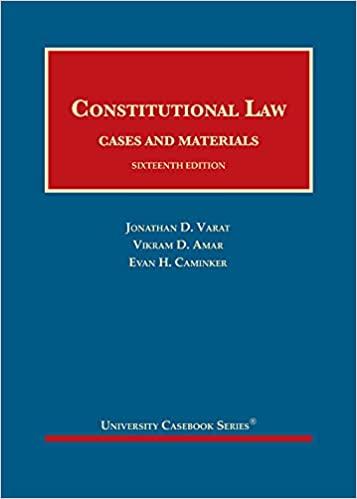Question
Read the case below and give me the court rulling and your own opinion whether you agree or disagree with the court rulling and why
Read the case below and give me the court rulling and your own opinion whether you agree or disagree with the court rulling and why.
Case : Wagner v. Columbia Pictures Industries, Inc
A California appellate panel has ruled that actor Robert Wagner may be the owner of rights in the "Charlie's Angels" television series but he is not entitled to profits from the Columbia Pictures movie franchise based thereon.
In an opinion issued Monday, the 2nd District Court of Appeal rejected Wagner's claims that he and his children are contractually entitled to net profits earned by 2000's "Charlie's Angels" and 2003's "Charlie's Angels: Full Throttle," which starred Drew Barrymore, Cameron Diaz and Lucy Liu.
Wagner and his former wife Natalie Wood developed the popular 1970s TV series with producers Aaron Spelling, Leonard Goldberg and their Spelling-Goldberg Prods. Under an agreement with the production company, Wagner and Wood were entitled to 50% of the net profits Spelling-Goldberg received "for the right to exhibit photoplays of the series and from the exploitation of all ancillary, music and subsidiary rights in connection therewith."
Years after Spelling-Goldberg sold both its rights and obligations relating to "Charlie's Angels" to Sony Pictures Television, Columbia purchased theatrical motion picture rights from heirs of the show's writers, Ivan Goff and Ben Roberts, to whom film rights had reverted under Writers Guild of America "separated rights" rules. Both Columbia and Sony Pictures Television are Sony-affiliated companies.
Wagner argued that under his contract with Spelling-Goldberg, the "subsidiary rights" provision meant he and his children with Wood, who died in 1981, were entitled to share in 50% of the income "from all sources," including the films.
Columbia, however, claimed that while "subsidiary rights" may sometimes include movie rights, Wagner's contract with Spelling-Goldberg did not cover film revenue because Columbia acquired film rights not from Spelling-Goldberg but on the open market just as any studio could have done.
The unanimous three-judge panel agreed.
"For a right to be 'subsidiary' or 'ancillary,' meaning supplementary or subordinate, there must be a primary right to which it relates," Justice Earl Johnson Jr. wrote on behalf of the panel. "The only primary right mentioned in the contract is 'the right to exhibit photoplays of the series.'
"Thus, the Wagners were entitled to share in the profits from the exploitation of the movie rights to Charlie's Angels if those rights were exploited by Columbia as ancillary or subsidiary rights of its primary 'right to exhibit photoplays of the series' but not if those rights were acquired by Columbia independently from its right to exhibit photoplays," Johnson concluded, with justices Norvell Woods Jr. and Laurie Zelon joining.
Wagner's attorney, Samuel Pryor of Dreier Stein & Kahan in Santa Monica, said the ruling is "unfortunate and we think it's a mistaken decision."
"We think their opinion really came down to one narrow interpretation of the contract that might have been a reasonable interpretation, but that they erred in dismissing ours as unreasonable as a matter of law, given the evidence we had as to the intention of the parties and the lack of any evidence submitted by the other side as to what the contract meant," he added.
Pryor said he and his client are deciding whether to file a petition for review with the California Supreme Court.
Columbia's attorney, Martin Katz of Sheppard Mullin Richter & Hampton in Los Angeles, said he did not see any basis for the state's high court to take the case.
"The court discussed both the words of the contract and the extrinsic evidence that was submitted by the parties, and after considering all the evidence, the court of appeal correctly concluded, as did the trial court, that Wagner's interpretation was not one to which the language was reasonably susceptible," Katz said. "So now there are four judges, the trial court judge and a unanimous panel on appeal that all agree with Columbia's position and have found Mr. Wagner's interpretation of the agreement unreasonable."
Reference : https://www.hollywoodreporter.com/news/court-denies-wagners-angels-claim-127703
Step by Step Solution
There are 3 Steps involved in it
Step: 1

Get Instant Access to Expert-Tailored Solutions
See step-by-step solutions with expert insights and AI powered tools for academic success
Step: 2

Step: 3

Ace Your Homework with AI
Get the answers you need in no time with our AI-driven, step-by-step assistance
Get Started


